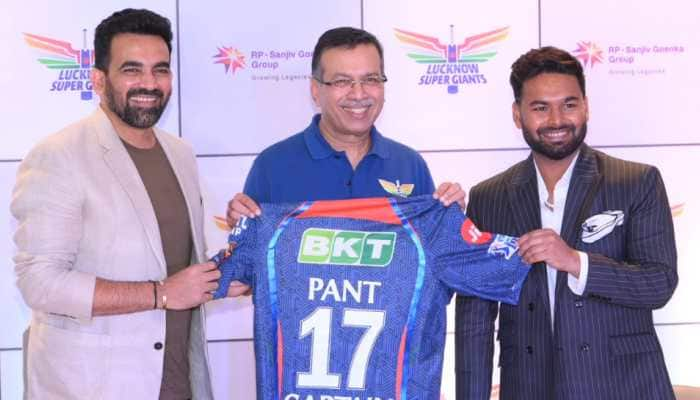With eyes on the West, China’s PLA undergoes major reshuffle
Five lieutenant generals (two from the army, one from the navy and two from the air force) were promoted to general, the PLA's highest rank.
- China's PLA saw a major reshuffle recently
- Five lieutenant generals were promoted to the General rank
- The move comes after US' withdrawal from Afghanistan
Trending Photos
) File Photo
File Photo Hong Kong: Border tensions with India, as well as the recent American and allied pullout from Afghanistan, means the importance of the Western Theater Command of the People's Liberation Army (PLA) has been growing in China's strategic reckoning.
This was confirmed on September 6 when Chairman Xi Jinping in Beijing presided over a ceremony promoting five senior officers. The five lieutenant generals (two from the army, one from the navy and two from the air force) were promoted to general, the PLA's highest rank. These generals and admiral have been given command of the PLA Navy (PLAN), PLA Air Force (PLAAF), National Defense University and two of five theater commands.
Interestingly, this was the third three-star ceremony in less than nine months. Four figures were promoted on December 18, 2020 and another four on July 5, 2021. Traditionally, such promotion ceremonies occurred only annually in July.
One of these promotions saw an army general heading the Central Theater Command, replacing a PLAAF general. This means all five theater commands now have an army general in charge. For all the talk of joint warfare and the PLA becoming less ground-centric, it seems that "Big Army" thinking still dominates within the PLA. This could be seen as a retrograde step, even if the current situation is changed in the future.
In a report for the China Aerospace Studies Institute (CASI), Kenneth W Allen, Dennis J Blasko and John F Corbett observed: "The recent promotions may reflect aspects of the announced goal to change the PLA's hierarchical structure from a 'grade-based' to a 'rank-based' system."
The Chinese military has a rather convoluted system of ten officer ranks (second lieutenant to general/admiral) and 15 grades (platoon leader to vice chairman of the Central Military Commission [CMC]). Establishing a "rank-based" system will require shortened times between promotions. More frequent three-star promotion ceremonies could be evidence that this is happening.
The three authors explained: "Previously, an officer's grade was more important than rank. However, the details of this major change from 'grade-based' to 'rank-based' have not been revealed, but could involve the length of time in service between promotions/assignments, or which ranks are associated with specific grades. Every officer also is assigned to an organizational billet (or post) appropriate to both rank and grade. Promotion ceremonies like this one publicly acknowledge officers' ranks and duty billets, but do not announce their grades, which can nonetheless be discerned by a ribbon worn on their uniforms."
One of the newly minted generals was Wang Haijiang, Commander of the Western Theater Command. Allen, Blasko and Corbett, observed: "The assignment of the third new commander to the Western Theater Command in less than two years [is] an unexplained phenomenon during the period in which China and India have been engaged in a tense and deadly border confrontation in Aksai Chin."
Fifty-eight-year-old Wang was first in protocol order during the ceremony. Born in October 1963, he received his second star in December 2019, less than two years ago. He was previously Commander, Xinjiang Military District (March-August 2021) and, before that, Commander, Tibet Military District (December 2019 to February 2021) and Deputy Commander, Tibet Military District (from 2016).
Even further back he was Commander of Nanjiang (Southern Xinjiang) Military District and Commander of the 61st Division in the Lanzhou Military Region. General Wang has thus had all his command experience in the Western Theater Command. Wang replaced General Xu Qiling, who was appointed head of the Western Theater Command just two months ago in July. Prior to that, he had spent two months as Army Commander in the Western Theater Command. That was his first assignment in China's west, unlike the vastly greater regional experience of Wang.
Xu's fate is not yet known, but it is possible he could be in line for a follow-on lateral assignment. Then again, a great number of senior PLA officers have also been netted by Xi's anti-graft campaign. With most of his career spent in the Eastern and Northern Theater Commands, is it possible the CMC was unhappy with his performance?
At 59, he should have six more years at a theatre-level grade. Therefore, his next stage should be of great interest to ascertain whether he has been promoted or sidelined.
Xu had himself replaced General Zhang Xudong, who was in charge for just six months (December 2020 till June 2021). Similarly, Zhang had little experience in China's west.
This rapid turnover stands in sharp contrast to General Zhao Zongqi, who was in command there for nearly five years prior to that. Perhaps this revolving door shows the CMC is unhappy with how events have played out along the Indian border.
Of the PLA's 37 full generals/admirals, at least nine will reach retirement age of 65 before the 20th Party Congress in 2022. Thus, new members of the CMC will eventuate at that time. The CASI report noted, "2022 is likely to be turbulent as roughly two dozen theater command leader-grade generals and admirals vie for promotion to these most senior leadership positions. It is unclear how the recent three-star promotions fit into that puzzle."
Allen, Blasko and Corbett noted: "...Wang Haijiang has long experience in Xinjiang and Tibet...and would be familiar with the operational, geographic and cultural conditions in the Western Theater Command. Wang's background has prepared him for leading the theater during the standoff with India in the Aksai Chin. Left unsaid by official Chinese sources is why there has been so much turnover in the Western Theater Command commander over the past two years - is this an example of 'ticket-punching' for selected officers to groom them for higher responsibility, or did something go wrong that led to their early departure?"
The trio of CASI authors observed: "The exact methodology and criteria used in selecting officers for promotion to general/admiral rank and higher-level billets are not public information, but the subject of endless speculation and rumor. Thousands of officers have been investigated and removed for corruption over the past decade. Needless to say, allegations of corruption can be used for political purposes and to derail the careers of rivals."
Of course, political loyalty to Xi plays an important role in high-level promotions. While Xi presumably plays a personal role in selecting senior officers, exact details are unknown. All senior PLA officers are senior communist party members and therefore "Xi's men".
Stay informed on all the latest news, real-time breaking news updates, and follow all the important headlines in india news and world News on Zee News.
Live Tv







)
)
)
)
)
)
)
)
)
)
